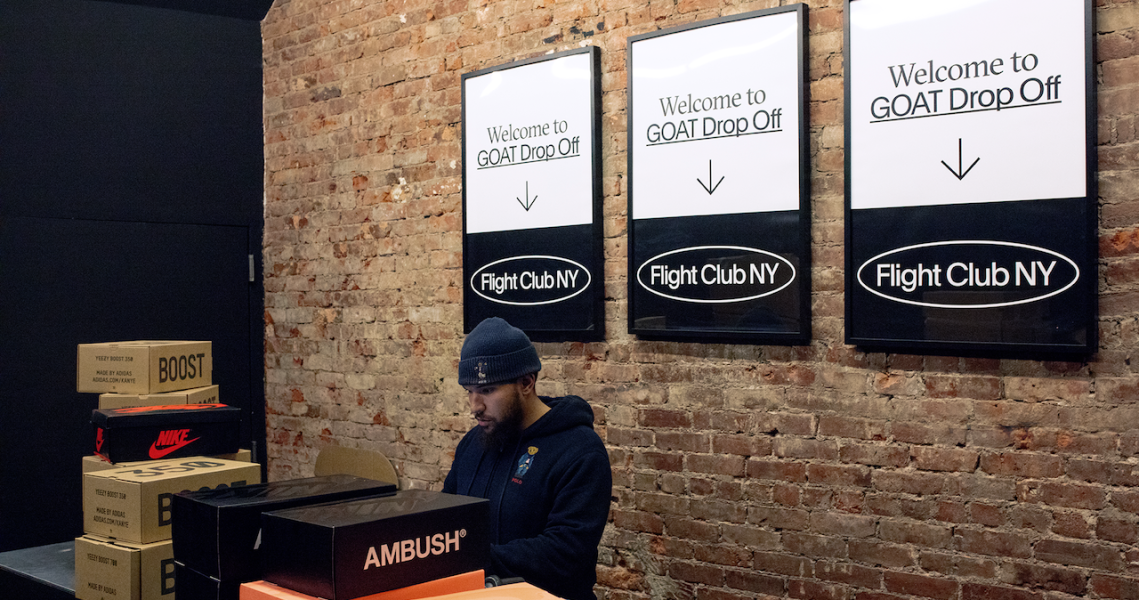Goat Group, the sneaker and streetwear resale powerhouse that owns both the digital marketplace Goat and brick-and-mortar store Flight Club, is adding another company to its portfolio. On October 13, the company announced it will acquire another sneaker resale platform, Grailed.
Nine-year-old Grailed is two years older than Goat. It will be folded into Goat Group’s portfolio and will share backend resources like payment processing. It will largely operate as an independent marketplace, separate from Goat. This distinction is important, as Goat’s and Grailed’s business models are very different. Goat is a consignment reseller. As such, sellers send products to the Goat team, which authenticates them and sends them to buyers. Grailed, meanwhile, is peer-to-peer. Customers buy and sell their products directly to each other, facilitated by Grailed’s marketplace. By acquiring Grailed, Goat will now be one of the first resale companies to have both models under one roof. Executives from both Goat and Grailed were unavailable for comment on this story.
Most major companies in the resale space offer either consignment or peer-to-peer selling. The RealReal and Stadium Goods are both consignment resellers, for example, while StockX and eBay are peer-to-peer. Even among branded resale, companies favor one over another. Brands such as Patagonia, Another Tomorrow and Dôen offer consignment resale, while Steve Madden offers peer-to-peer. While consignment is preferable for buyers since they get the guarantee of authenticity, sellers often prefer peer-to-peer due to lower barriers to selling. For example, Goat requires all sellers to go through an approval process before they can begin consigning, while Grailed does not have that requirement.
The relative pros and cons of both models are clear. Nellie Cohen, resale consultant and director of circular business models at Anthesis Group, said peer-to-peer resale is much easier logistically. However, marketplaces offering peer-to-peer, like eBay, lack control over the customer experience.
“The peer-to-peer process is almost like a banking process,” Cohen said. “It’s like you’re just a bank that customers are passing money through.”
Technically speaking, Grailed and Goat are both consignment-based since sellers only receive payment when an item is bought. But colloquially, resale platforms labeled consignment take possession of inventory and physically facilitate the sale. Items sold through Grailed are shipped by the seller, without any input from Grailed, directly to the buyer.
“The intermediate ‘jump’ [from seller to Goat to buyer] adds shipping cost and additional wait time for the buyer for the additional benefit of authenticity,” said Andy Ruben, founder of resale tech company Trove. “There are buyers who find value in the additional steps in the Goat model, especially for items with high degrees of fakes.”
But from the consumer perspective, both models are popular. Summer 2022 data from Morning Consult indicated that 39% of U.S. shoppers have used peer-to-peer platforms and 38% have used consignment retail.
Having more ways to sell will allow Goat to grow and better compete with its main rival, StockX. As of 2021, StockX had more than a million sellers on the platform, while Goat had around 700,000. Both companies are neck-and-neck in market valuation, with Goat worth $3.7 billion and StockX worth $3.8 billion.




